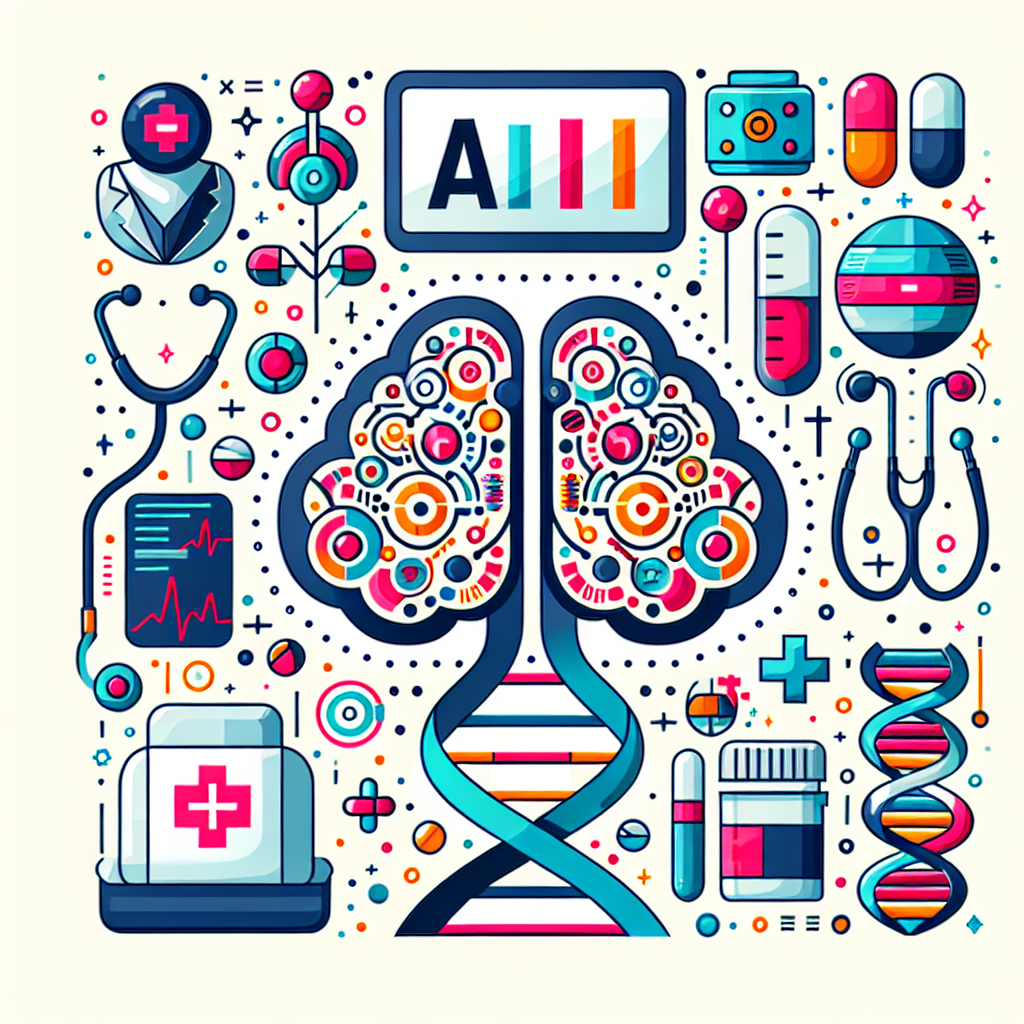Generative AI and Personalized Medicine: Innovations in Healthcare
Artificial intelligence (AI) has been making waves in various industries, and healthcare is no exception. Generative AI, in particular, has been revolutionizing the way personalized medicine is delivered to patients. By harnessing the power of AI to analyze vast amounts of data and generate personalized treatment options, healthcare providers can now offer more effective and targeted therapies to patients.
Generative AI uses machine learning algorithms to create new data, such as images, text, or even entire genomes. This technology has the potential to transform healthcare by enabling researchers and clinicians to develop personalized treatment plans based on a patient’s unique genetic makeup, medical history, and other factors.
One of the key benefits of generative AI in personalized medicine is its ability to generate synthetic data that can be used to train machine learning models. By creating large datasets of synthetic patient data, researchers can develop more accurate predictive models that can help identify potential health risks and tailor treatment plans to individual patients.
In addition, generative AI can be used to simulate the effects of different treatments on virtual patient models. By running simulations, clinicians can test different treatment options and determine the most effective course of action for a particular patient, without the need for trial and error.
Furthermore, generative AI can help healthcare providers identify patterns and trends in patient data that may not be immediately apparent to human researchers. By analyzing vast amounts of data from electronic health records, genetic tests, and other sources, AI can uncover hidden correlations and insights that can lead to more effective treatments and better patient outcomes.
One of the key challenges in personalized medicine is the sheer volume of data that needs to be analyzed to develop personalized treatment plans. Generative AI can help streamline this process by automating data analysis and generating personalized treatment options based on the latest research and clinical guidelines.
FAQs
Q: How does generative AI work in personalized medicine?
A: Generative AI uses machine learning algorithms to create new data based on existing datasets. In personalized medicine, generative AI can be used to analyze patient data, genetic information, and other factors to generate personalized treatment options for individual patients.
Q: What are the benefits of using generative AI in healthcare?
A: Generative AI can help healthcare providers develop more accurate predictive models, simulate the effects of different treatments, and uncover hidden patterns and insights in patient data. This can lead to more effective treatments, better patient outcomes, and a more personalized approach to healthcare.
Q: What are the challenges of implementing generative AI in personalized medicine?
A: One of the key challenges of using generative AI in personalized medicine is the need for large amounts of data to train machine learning models. Additionally, there are ethical and regulatory considerations that need to be addressed when using AI in healthcare.
Q: How can healthcare providers ensure the ethical use of generative AI in personalized medicine?
A: Healthcare providers can ensure the ethical use of generative AI by implementing strict data privacy and security measures, obtaining informed consent from patients, and following ethical guidelines and regulations set forth by governing bodies.
In conclusion, generative AI has the potential to revolutionize personalized medicine by enabling healthcare providers to develop more effective and targeted treatment plans for individual patients. By harnessing the power of AI to analyze vast amounts of data and generate personalized treatment options, healthcare providers can offer more personalized and precise care to patients, leading to better outcomes and improved quality of life.

